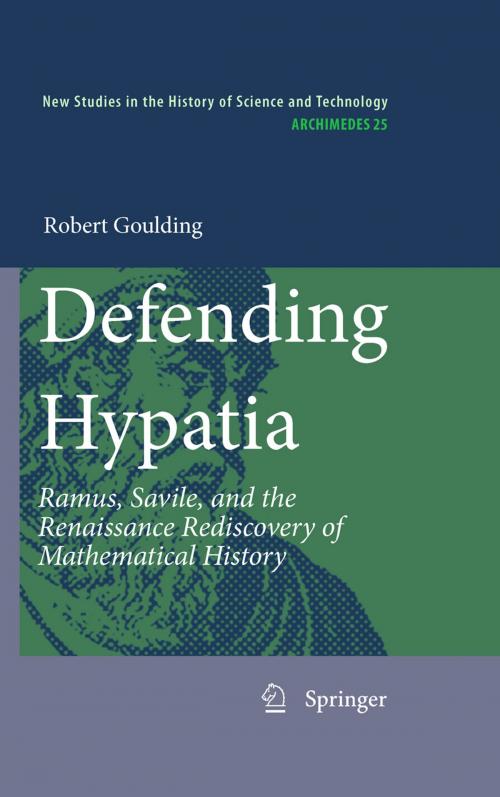Defending Hypatia
Ramus, Savile, and the Renaissance Rediscovery of Mathematical History
Nonfiction, Science & Nature, Science, Other Sciences, Philosophy & Social Aspects, Mathematics| Author: | Robert Goulding | ISBN: | 9789048135424 |
| Publisher: | Springer Netherlands | Publication: | June 9, 2010 |
| Imprint: | Springer | Language: | English |
| Author: | Robert Goulding |
| ISBN: | 9789048135424 |
| Publisher: | Springer Netherlands |
| Publication: | June 9, 2010 |
| Imprint: | Springer |
| Language: | English |
Why should mathematics, the purest of sciences, have a history? Medieval mathematicians took little interest in the history of their discipline. Yet in the Renaissance the history of mathematics flourished. This book explores how Renaissance scholars recovered and reconstructed the origins of mathematics by tracing its invention in prehistoric Antiquity, its development by the Greeks, and its transmission to modern Europe via the works of Euclid, Theon and Proclus. The principal architects of this story -- the French philosopher and University of Paris reformer Peter Ramus, and his critic, the young Oxford astronomy lecturer Henry Savile – worked out diametrically opposed models for the development of the mathematical arts, models of historical progress and decline which mirrored each scholar’s larger convictions about the nature of mathematical thinking, the purpose of the modern university, and the potential of the human mind. In their hands, the obscure story of mathematical history became a site of contention over some of the most pressing philosophical and pedagogical debates of the sixteenth century.
Why should mathematics, the purest of sciences, have a history? Medieval mathematicians took little interest in the history of their discipline. Yet in the Renaissance the history of mathematics flourished. This book explores how Renaissance scholars recovered and reconstructed the origins of mathematics by tracing its invention in prehistoric Antiquity, its development by the Greeks, and its transmission to modern Europe via the works of Euclid, Theon and Proclus. The principal architects of this story -- the French philosopher and University of Paris reformer Peter Ramus, and his critic, the young Oxford astronomy lecturer Henry Savile – worked out diametrically opposed models for the development of the mathematical arts, models of historical progress and decline which mirrored each scholar’s larger convictions about the nature of mathematical thinking, the purpose of the modern university, and the potential of the human mind. In their hands, the obscure story of mathematical history became a site of contention over some of the most pressing philosophical and pedagogical debates of the sixteenth century.















